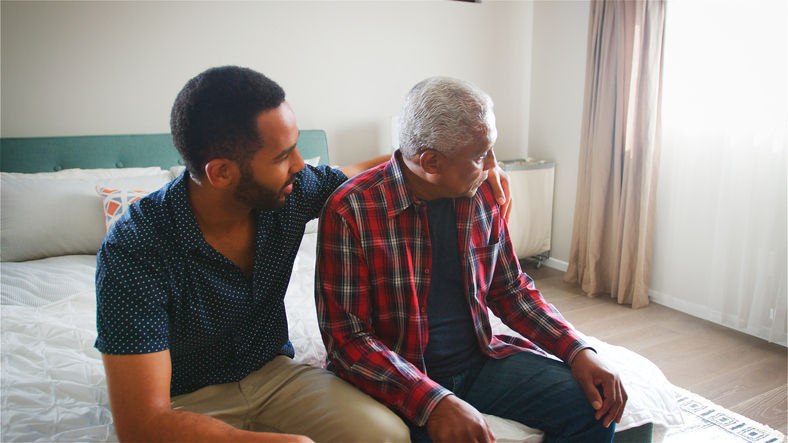Are You Assuming Your Kids Will Be Your Caregivers?
- Elder Care Law Blogger
- Jun 19, 2022
- 3 min read
Updated: Oct 6, 2022
By Debra King

Are you expecting your kids to care for you in your old age—but you’ve never talked to them about your expectations?
This is a mistake.
Caregiving is a big commitment. There are physical, emotional, financial, and occupational costs that often go unacknowledged. The nation’s 48 million unpaid family caregivers are not only dedicating their time and efforts to the well-being of their loved ones — most of them are spending their own money on caregiving expenses. According to an AARP study, three-quarters of the family caregivers surveyed reported spending an average of $7,242 annually on out-of-pocket costs related to caregiving. A 1999 study found that caregivers have a 63 percent higher mortality rate than non-caregivers, and according to Stanford University, 40 percent of Alzheimer’s caregivers die from stress-related disorders before the patient dies.
I see clients every day who assume that their kids will take care of them, but don’t ever share their expectations. Why? There are as many reasons as there are families.
If you’re expecting your children to take care of you in your old age, you need to have that discussion when you’re healthy at a time when the whole family is together. Do it on Thanksgiving, during a family vacation, on Mother’s Day, Father’s Day, or some other holiday. The “when” isn’t important, as long as the conversation happens before you need care.
If your kids bring up the topic before you do, try not to be defensive. Instead of seeing it as an intrusion, look at it as a gesture of concern from people who care about you.
During that conversation, talk about your hopes. Talk about your fears. Talk about your preferences. Let the kids know what you expect, and then ask them how they propose to meet your expectations.
And then listen.
Caregiving in families can be done in a thousand different ways. I’ve seen many different scenarios. No one way is better than any other.
In some families, one child takes the lead and does everything. In other families, the adult siblings alternate caregiving duties. I’ve had clients where the mom lived a month at a time with each of her four children. The kids swapped out the caregiving responsibilities until the care needs were more than they could handle.
Your children may reach a point where it’s impossible for them to continue providing hands-on care. Maybe they promised that they would take care of you at home, and then something happens, and they can’t continue. Maybe they end up hiring professional caregivers or make the decision to place you in a facility. These decisions won’t be easy to make. In fact, your kids will probably agonize over them. I see it all the time with my clients. We tell them that taking care of mom and dad doesn’t necessarily mean performing all the hands-on care; it means making sure that they get the care they need.
Sometimes caregivers have a line they won’t cross. My mother drew this kind of line with her mother. “She can stay here, and I’ll take care of her till she can’t toilet herself anymore,” I remember my mom saying. For some people, the line is when their loved one doesn’t know them anymore.
If you’re 90 and you’re expecting your 75-year-old child to do the hands-on caregiving, you may be expecting too much. What if your child gets a cancer diagnosis and needs surgery, radiation, and chemo? What happens if your child ends up with a back injury and can’t lift you anymore? Who’s going to fill the gap?
These questions need to be answered early, and with the input of everyone involved. If you haven’t talked to your family about your preferences for care as you age, please do it now.
Debra King, LCSW is an elder care coordinator at Takacs McGinnis Elder Care Law in Hendersonville, Tennessee.







Comments